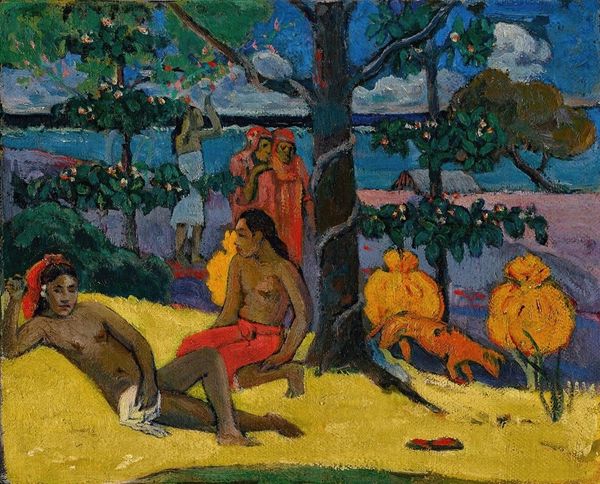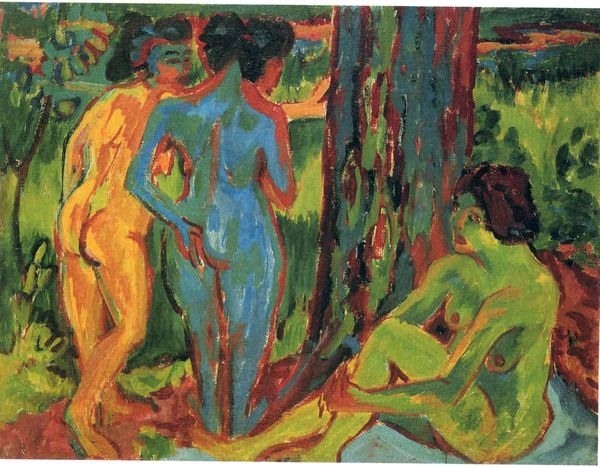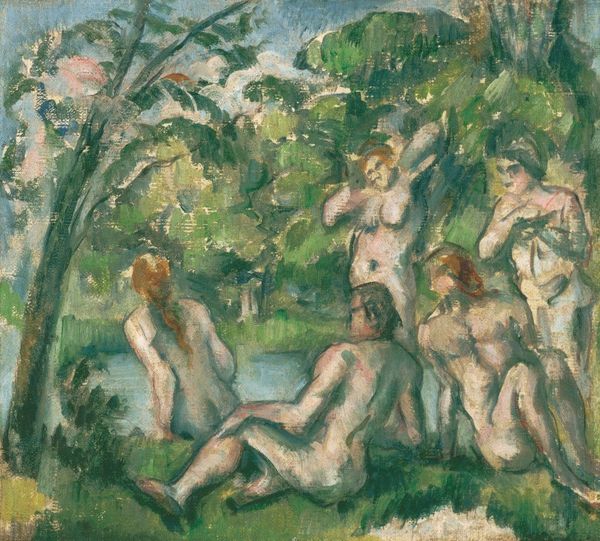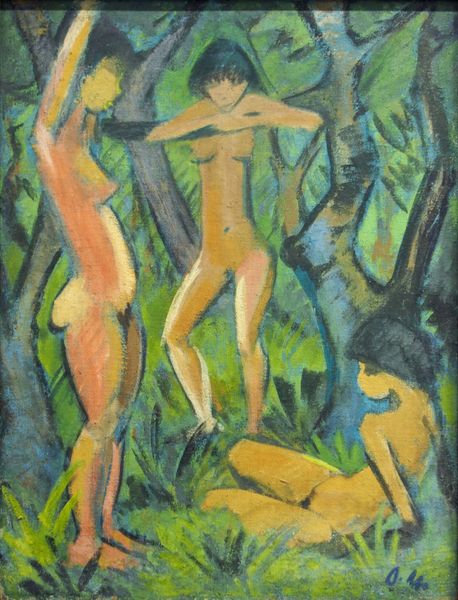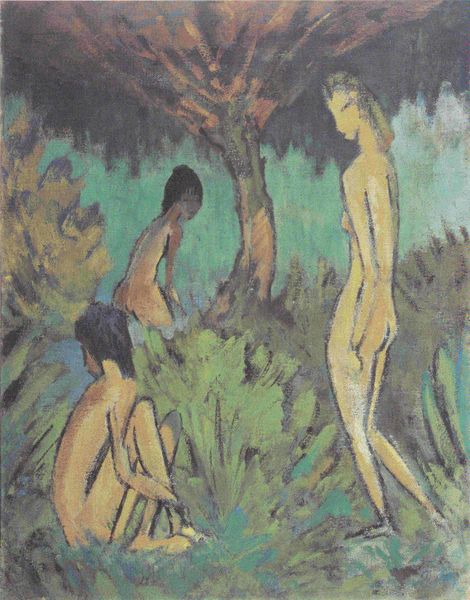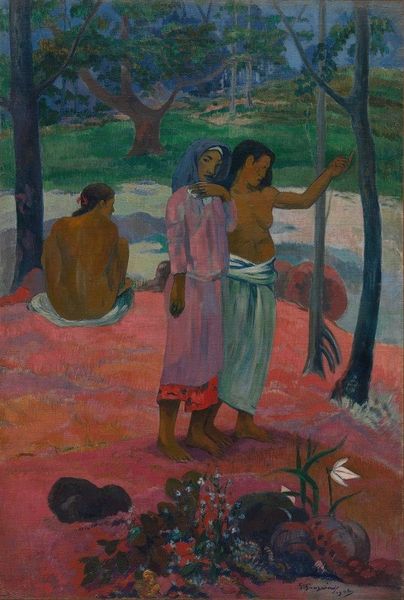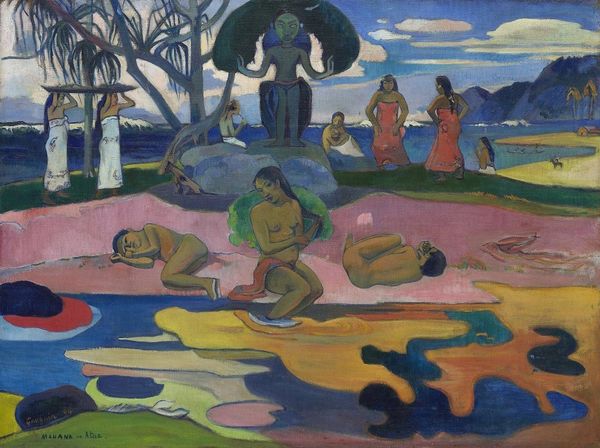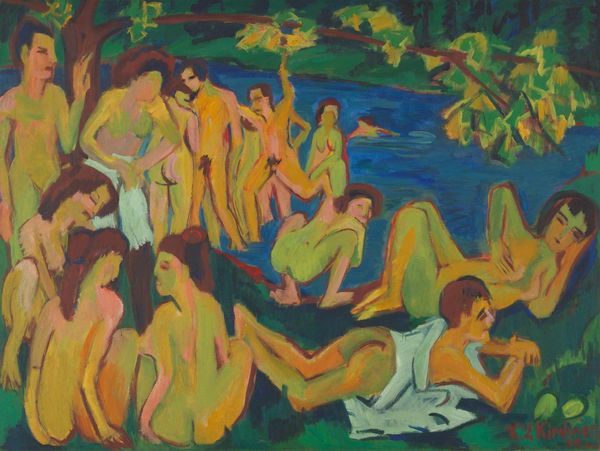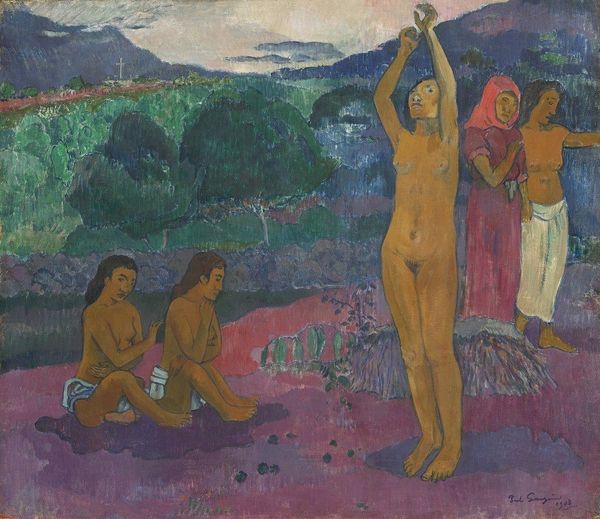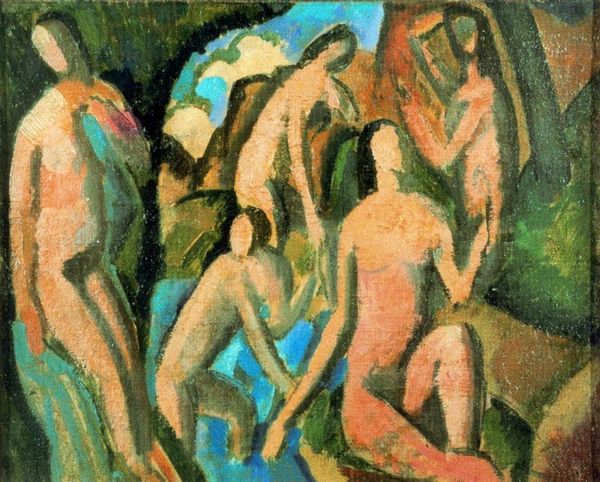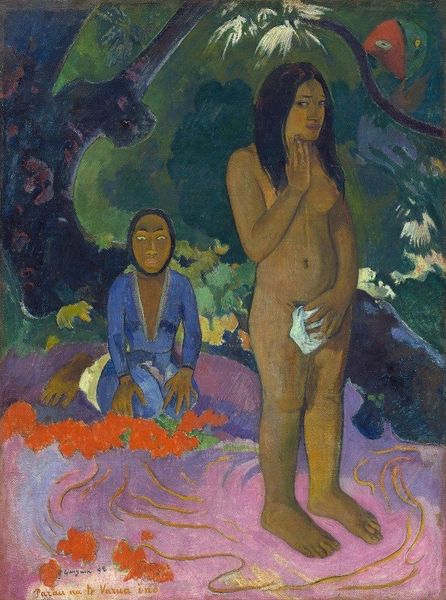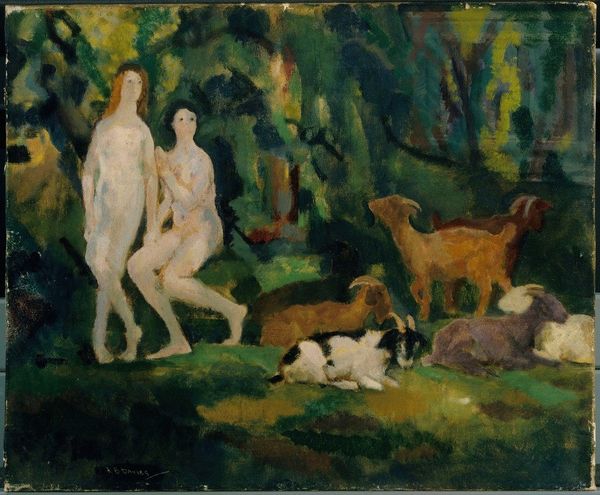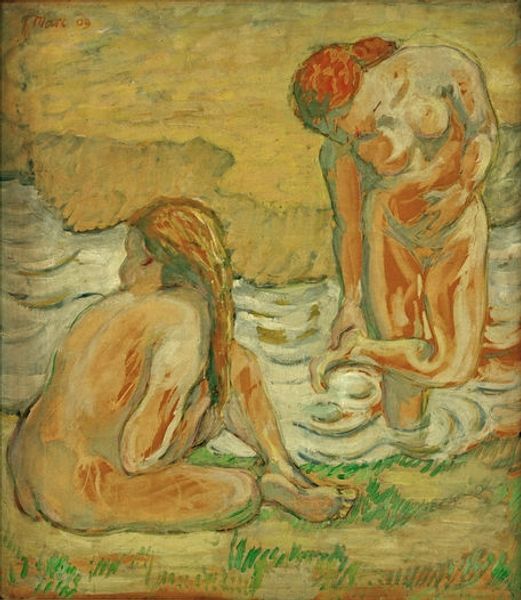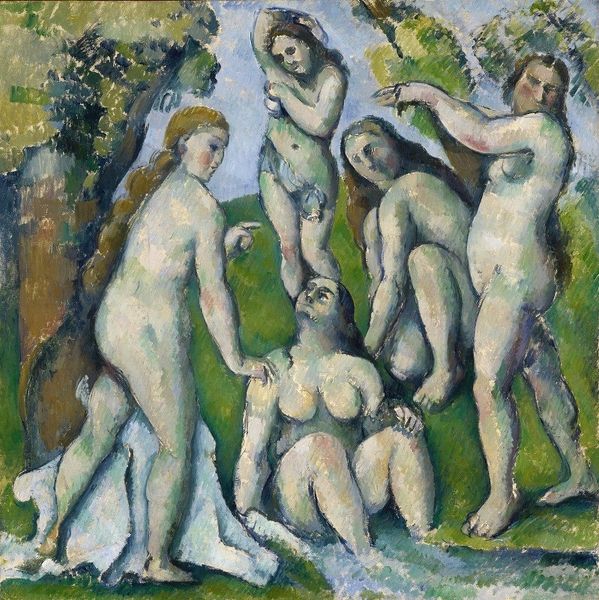
painting, oil-paint
#
water colours
#
painting
#
oil-paint
#
landscape
#
figuration
#
coloured pencil
#
naive art
#
post-impressionism
#
nude
Copyright: Public Domain: Artvee
Editor: This is Paul Gauguin’s “Paradise Lost,” painted around 1890. It looks like oil paint on canvas, and it definitely has a dreamlike quality to it, almost like a hazy memory. What strikes me most is the juxtaposition of Eve at the front, seemingly undisturbed, with Adam and Eve being banished from Eden in the background. What do you see in this piece? Curator: From a historical perspective, it is crucial to look at Gauguin's interest in "primitive" cultures and how that impacted his art and his place in the art world. "Paradise Lost" speaks to the exoticized visions Europeans held. It wasn't necessarily about an accurate depiction of Tahitian life. It's worth thinking about the way in which he positions Eve, a figure central to Western religious stories, within what he perceived as a more "natural" environment. What effect does the painting have on the public understanding of cultural differences? Editor: So, it is less about the biblical story itself and more about Gauguin’s commentary on European perceptions of non-European cultures at that time? Curator: Exactly. The painting highlights the social power dynamics between colonizers and the colonized. It's a re-imagining of a familiar narrative through a very specific colonial lens. Consider who had access to these artworks and what messages were being reinforced through their display in museums. Editor: That's a perspective I hadn't considered before. I was focusing on the personal, the symbolic narrative. Now, I see it within a much wider social frame. Curator: And how do you think these works should be displayed in order to foster public discourse and critique of its impact on cultural perspectives? Editor: Perhaps alongside work by Tahitian artists, creating a dialogue, not a one-sided representation. It would prompt us to critically examine not just Gauguin's artistry, but also the power dynamics inherent in how museums display art. I'll definitely look at Gauguin’s work differently from now on!
Comments
No comments
Be the first to comment and join the conversation on the ultimate creative platform.
